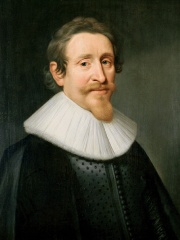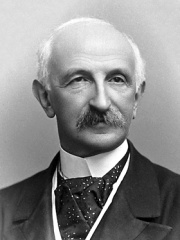

The Most Famous
LAWYERS from Netherlands
This page contains a list of the greatest Dutch Lawyers. The pantheon dataset contains 136 Lawyers, 2 of which were born in Netherlands. This makes Netherlands the birth place of the 11th most number of Lawyers behind Egypt, and Ukraine.
Top 2
The following people are considered by Pantheon to be the most legendary Dutch Lawyers of all time. This list of famous Dutch Lawyers is sorted by HPI (Historical Popularity Index), a metric that aggregates information on a biography's online popularity.

1. Hugo Grotius (1583 - 1645)
With an HPI of 80.80, Hugo Grotius is the most famous Dutch Lawyer. His biography has been translated into 75 different languages on wikipedia.
Hugo Grotius ( GROH-shee-əss; 10 April 1583 – 28 August 1645), also known as Hugo de Groot (Dutch: [ˈɦyɣoː də ˈɣroːt]) or Huig de Groot (Dutch: [ˈɦœyɣ də ˈɣroːt]), was a Dutch humanist, diplomat, lawyer, theologian, jurist, statesman, poet and playwright. A teenage prodigy, he was born in Delft and studied at Leiden University. He was imprisoned in Loevestein Castle for his involvement in the controversies over religious policy of the Dutch Republic, but escaped hidden in a chest of books that was regularly brought to him and was transported to Gorinchem. Grotius wrote most of his major works in exile in France. Grotius was a major figure in the fields of philosophy, political theory and law during the 16th and 17th centuries. Along with the earlier works of Francisco de Vitoria and Alberico Gentili, his writings laid the foundations for international law. Two of his books have had a lasting impact in the field: De jure belli ac pacis (On the Law of War and Peace) dedicated to Louis XIII of France and the Mare Liberum (The Free Seas) for which Grotius has been called the "father of international law." Grotius has also contributed significantly to the evolution of the notion of rights. Before him, rights were, above all, perceived as attached to objects; after him, they are seen as belonging to persons, as the expression of an ability to act, or as a means of realizing something. Peter Borschberg suggests that Grotius was significantly influenced by Francisco de Vitoria and the School of Salamanca in Spain, who supported the idea that the sovereignty of a nation does not lie simply in a ruler through God's will, but originates in its people, who agree to confer such authority upon a ruler. It is also thought that Grotius was not the first to formulate the international society doctrine, but he was one of the first to define expressly the idea of one society of states, governed not by force or warfare but by actual laws and mutual agreement to enforce those laws. As Hedley Bull declared in 1990: "The idea of international society which Grotius propounded was given concrete expression in the Peace of Westphalia, and Grotius may be considered the intellectual father of this first general peace settlement of modern times." Additionally, his contributions to Arminian theology helped provide the seeds for later Arminian-based movements, such as Methodism and Pentecostalism; Grotius is acknowledged as a significant figure in the Arminian–Calvinist debate. Because of his theological underpinning of free trade, he is also considered an "economic theologist". After fading over time, the influence of Grotius's ideas revived in the 20th century following the First World War.

2. Tobias Asser (1838 - 1913)
With an HPI of 73.34, Tobias Asser is the 2nd most famous Dutch Lawyer. His biography has been translated into 56 different languages.
Tobias Michael Carel Asser (Dutch pronunciation: [ˈtoːbijɑs miˈɕɛl ˈkaːrəl ˈɑsər]; 28 April 1838 – 29 July 1913) was a Dutch lawyer and legal scholar. In 1911, he won the Nobel Peace Prize (together with Alfred Fried) for his role in the establishment of the Permanent Court of Arbitration at the First Hague Peace Conference in 1899 and for his achievements in establishing the Hague Conference on Private International Law (HCCH).
People
Pantheon has 2 people classified as Dutch lawyers born between 1583 and 1838. Of these 2, none of them are still alive today. The most famous deceased Dutch lawyers include Hugo Grotius, and Tobias Asser.

